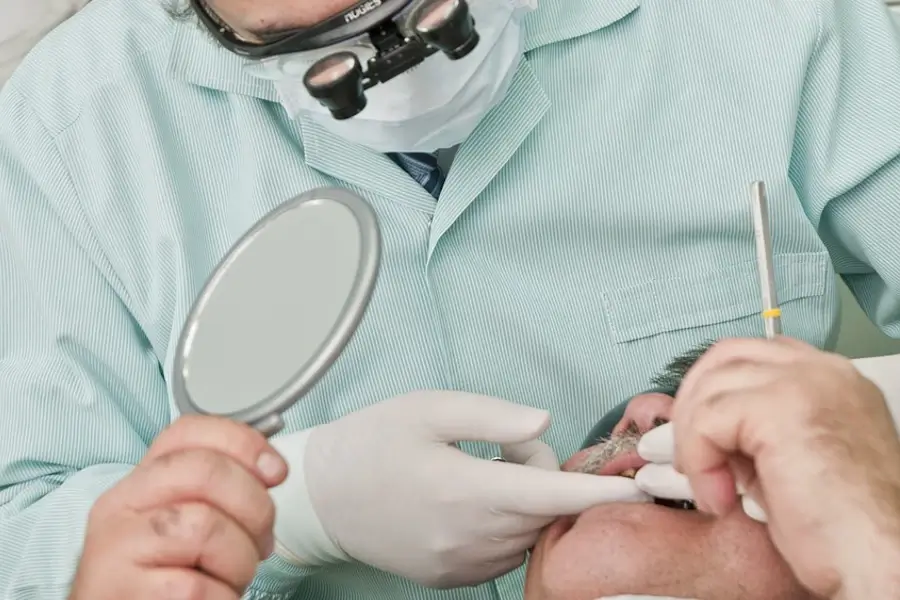Oral Health and Erectile Dysfunction Were Discussed
There is indeed a growing body of evidence that suggests there may be a connection between erectile dysfunction (ED) and poor oral health. To illustrate the connection, below is a breakdown:
Because of the Mouth-Body Connection:
Our mouths are filled with germs, both beneficial and harmful organisms. Neglecting to exercise proper dental hygiene can result in the overgrowth of harmful bacteria, leading to gum disease, also known as periodontitis. It is not just the mouth that is affected by the chronic inflammation produced by gum disease. By way of the bloodstream, it can potentially affect the entire body.
Flow of Blood and Inflammation Levels:
It is possible for the endothelial cells that line your blood arteries to be damaged by the chronic inflammation that is linked with gum disease. These cells are essential in the process of blood circulation throughout the body, including the circulation of blood to the penis, which is required for an erection to occur.
The Research and the Evidence:
Numerous research studies have investigated the connection between poor oral health, notably gum disease, and the development of erectile dysfunction (ED) in males. This link is associated with an increased risk of developing ED. Periodontal disease is a chronic inflammatory disorder that affects the gums and the bone that lies under the gums and supports the teeth. Gum disease is also known as periodontal disease.
The chronic inflammatory state associated with gum disease may bring on endothelial dysfunction, which is a precursor to cardiovascular disease.
It has been discovered that this inflammatory process has systemic implications, which can damage various elements within the body, including the vascular system.
It is becoming increasingly apparent that the inflammation that is associated with gum disease may play a role in the development of erectile dysfunction (ED) by affecting the blood vessels that are responsible for providing blood flow to the penis.
Men who have gum disease that is severe and has not been treated have been reported to have a higher likelihood of experiencing difficulties in getting and keeping an erection in comparison to men who have healthy gums and take appropriate care of their oral hygiene.
The relationship between gum disease and erectile dysfunction is likely to involve multiple factors. The chronic inflammatory state associated with gum disease may bring on endothelial dysfunction, which is a precursor to cardiovascular disease.
Because of this degradation of the endothelial cells that line the blood arteries, the vascular function in the penis might also be affected, which may be a contributing factor in the development of erectile dysfunction (ED).
The germs and toxins connected with gum disease may also directly affect the body’s ability to sustain good sexual function. This is something that should be discussed further. As a result of the systemic inflammation that is caused by these oral infections, the delicate balance of hormones and signaling pathways that are involved in the sexual response cycle might be disrupted, which may result in difficulty in establishing and maintaining an erection.
It is important to maintain good oral hygiene and seek timely treatment for gum disease since this may not only enhance one’s dental health but also positively impact overall sexual function and well-being. These findings underscore the need for maintaining good oral hygiene and seeking treatment for gum disease.
Studies have indicated that men who suffer from erectile dysfunction and undergo treatment for gum disease also see improvements.
When men with erectile dysfunction (ED) get their gum disease treated, there is a possibility that they will see improvements in their sexual health and overall quality of life.
According to research, treating gum disease may also improve erectile function. This is another benefit of gum disease treatment. Studies have indicated that men who suffer from erectile dysfunction and undergo treatment for gum disease also see improvements in their ability to maintain an erection.
Consider the following essential points:
Comparing Correlation and Causation: It is essential to keep in mind that the research findings indicate a correlation but not necessarily a causal relationship. Poor dental health may be a risk factor for erectile dysfunction (ED), but it is possible that it is not the only cause in all instances.
In addition to a variety of other potential reasons, erectile dysfunction (ED) can also be brought on by underlying medical disorders such as diabetes or heart disease. It is essential to address these issues to properly treat erectile dysfunction.
What You Can Do:
Proper oral hygiene is vital to maintaining good oral health. This includes brushing your teeth twice a day, flossing after each meal, and going to the dentist for regular exams.
If you are having erectile dysfunction (ED), you must discuss it with your physician. They can provide appropriate therapy alternatives and assist in determining the root of the problem.
Take a Holistic Approach: Although treating gum disease may help improve erectile dysfunction (ED), it is possible that this is not the only option. A physician can provide a thorough, individualized treatment plan to meet your requirements.
Always remember that maintaining good oral health is vital for general well-being and may aid in managing erectile dysfunction (ED).
Do not be afraid to inform your physician if you are concerned about erectile dysfunction (ED). They can offer their counsel and assist you in achieving a sexual life that is both healthier and more satisfying.













